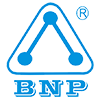Strengthening food safety in rural and pastoral areas requires the application of ozone generators
In recent years, the construction of agricultural science and technology system, food industry science and technology system and public health system has been a certain development, health, agriculture, quality and technical supervision, inspection and quarantine and other departments have set up inspection institutions related to food safety, and have certain experimental conditions in their respective fields. However, the integration of food safety in rural and pastoral areas into the field of public safety is still a blank from the overall level of systematic research, and the concept of food safety in rural and pastoral areas has only replaced the concept of food hygiene in the past two years, and has not been fully recognized in a wider field. From the national to the local level, there is no perfect and unified food safety standards, and there is no food safety monitoring system covering the entire link from farmland to the table, covering both urban and rural areas, so that food safety supervision in rural pastoral areas lacks technical support and basis.

In addition to being a major public health issue, food safety is a social issue, involving the construction of laws and regulations, the level of management and supervision, the quality of food producers and operators, and the consumption concept of the whole society. However, the long-standing “bottleneck” of science and technology is an important factor affecting China’s food safety. Therefore, it is necessary to increase the scientific and technological research on food safety. For example, actively exploring the application of advanced measures such as ozone generators and HACCP in preventing bacterial contamination of food and improving food safety and quality can effectively improve the health of food production in rural pastoral areas and promote the healthy development of the food market in rural pastoral areas of China.
Post time: Dec-25-2024


